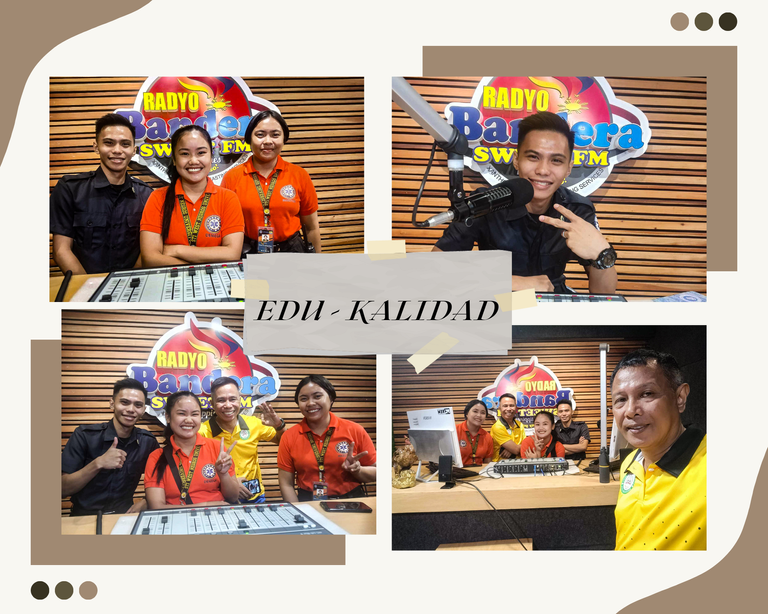
This photo was edited on Canva.
Stepping into the brightly lit Radyo Bandera studio, a rush of adrenaline courses through me. The fast-paced atmosphere filled with producers, anchors, and technicians hurrying to get the broadcast on-air, coupled with the murmur of their enthusiastic chatter and last-minute updates, is certainly awe-inspiring.
Having been invited as a guest speaker for the station's EDU-Kalidad segment, I am both thrilled and humbled to share my knowledge about disaster preparedness, particularly on dealing with typhoons. As I sit in the guest chair, the radio host extends a warm welcome, I adjust the microphone closer to me, and we dive into our topic of discussion.

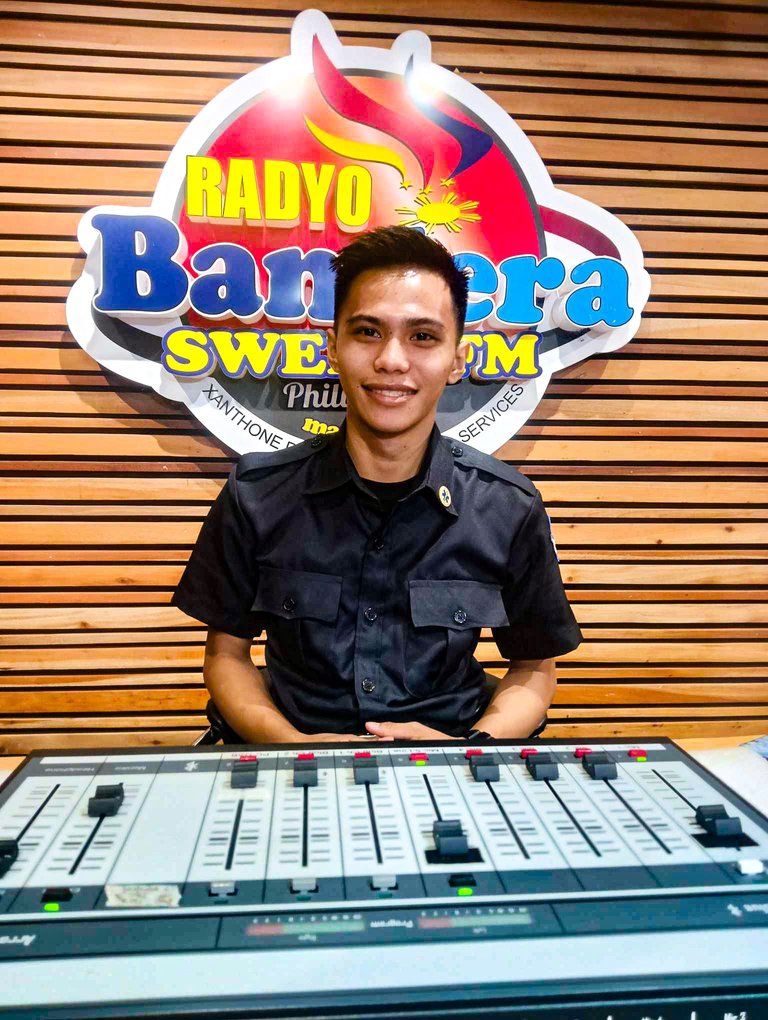
Throughout the live broadcast, we touch on what people should do before, during, and after a typhoon. Before the typhoon, we discuss the importance of monitoring weather reports, securing homes, and preparing an emergency supply kit. During a typhoon, we emphasize seeking shelter, avoiding dangerous areas, and listening for updates from authorities. In the aftermath, we advocate for checking the house for damage, reconnecting with loved ones, and not returning home until the area is declared safe.
We also delve into the topic of 72-hour kits or emergency bags – essential, life-saving kits designed to help an individual or family sustain for up to three days following a disaster. From food and water to medicine and important documents, the inclusion of each item in the kit is critical, and discussing this allows me to pass on crucial information to our listeners.
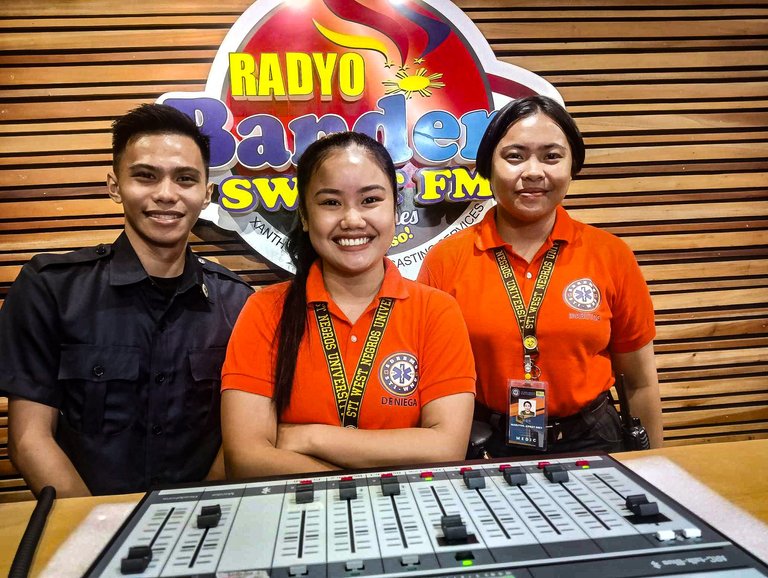
Apart from this, sharing my personal experiences as a responder and rescuer stirs an unexpected mix of emotions. It is one thing to face challenges and fears when confronted by calamities and another to articulate these experiences to a wide audience. Recounting some intense situations I've faced during rescue operations, the sense of purpose and fulfillment it brought me, despite the danger, always outshines the hardship.
Delving into the reasons why I joined a rescue team, it’s crystal clear to me that this journey has not been just about daring acts of courage but more about compassion and the strong drive to save and serve my fellow humans. Becoming a rescuer was more than a job – it was a calling, a mission to aid those in need and protect the vulnerable. It's this relentless spirit and resilience that I hoped to communicate through my time on air.
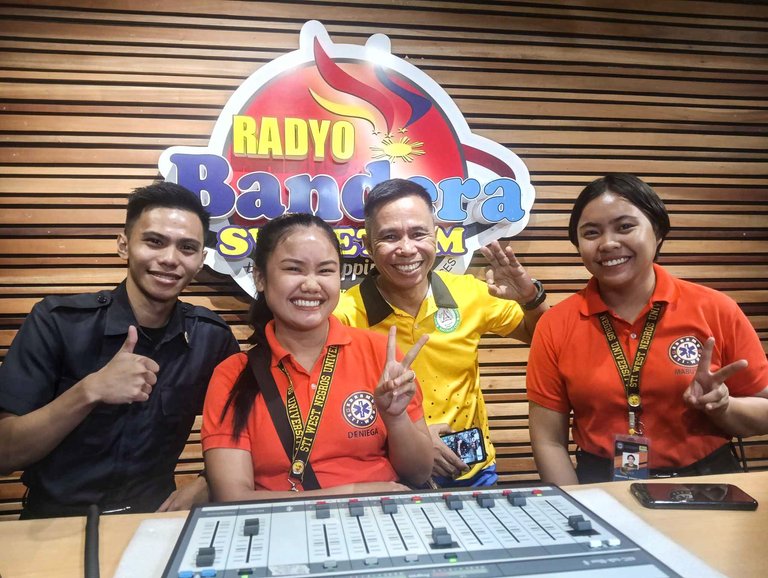
The warmth and gratitude from the host and radio team at Radyo Bandera capped the unforgettable experience. Walking away from the radio station, I am more than just filled with excitement from the interview. I am also profoundly inspired and more resolute in my commitment as a responder, knowing I've been able to enlighten listeners on crucial topics and potentially equip them better in times of disaster.
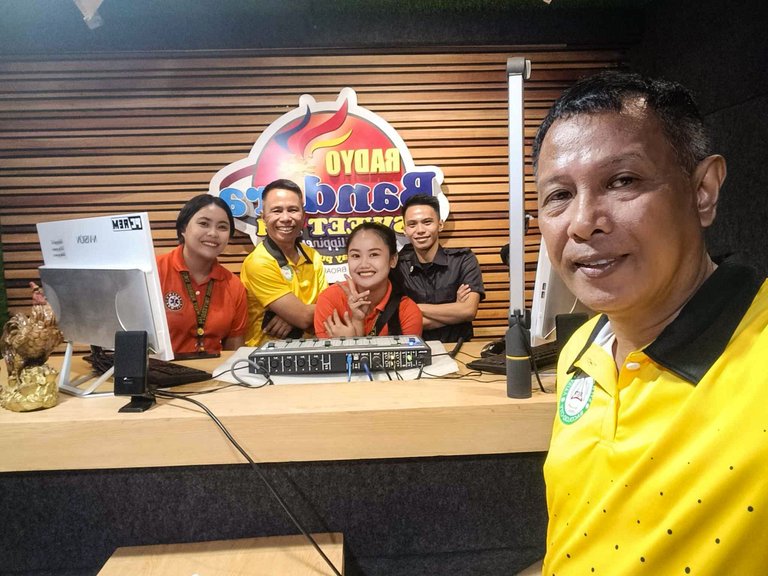
So, remember, every second counts during a disaster. Make sure you are prepared. Know what to do before, during, and after a typhoon, and don’t forget to prepare your 72-hour kits. Above all, look out for each other, because humanity's strength lies in our ability to help and protect each other in the face of adversity. Stay safe!
Congratulations @kjl26! You have completed the following achievement on the Hive blockchain And have been rewarded with New badge(s)
Your next target is to reach 9000 upvotes.
You can view your badges on your board and compare yourself to others in the Ranking
If you no longer want to receive notifications, reply to this comment with the word
STOPCheck out our last posts: